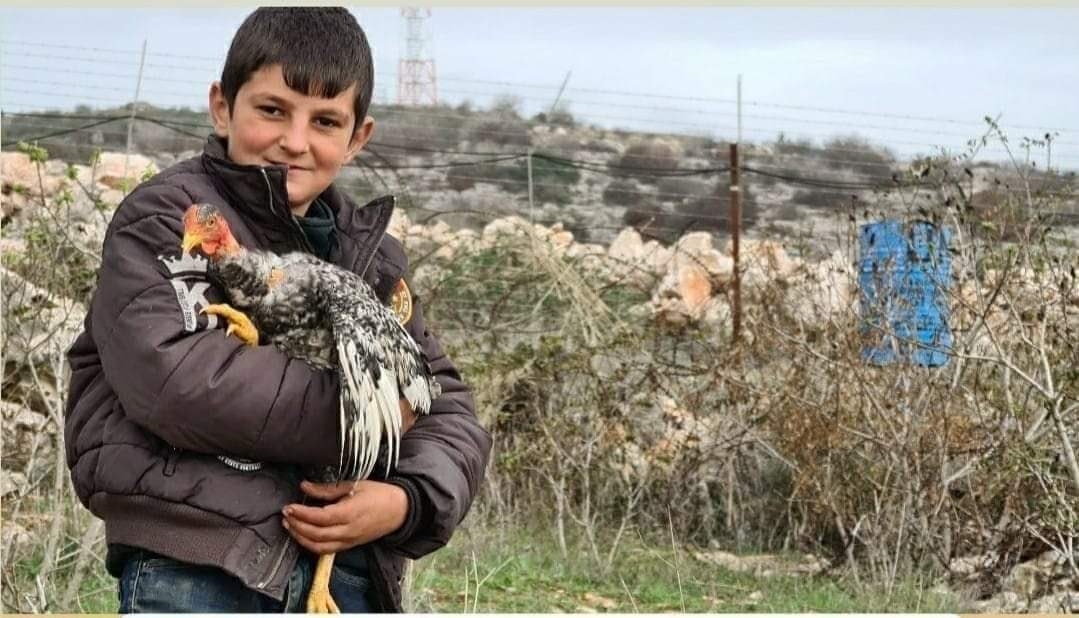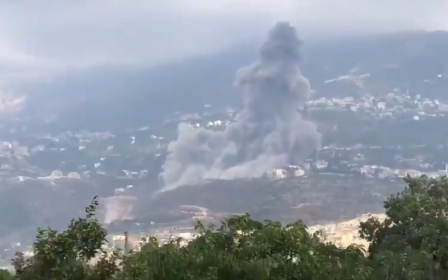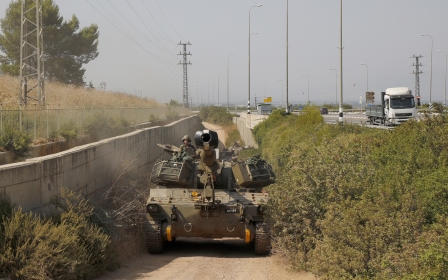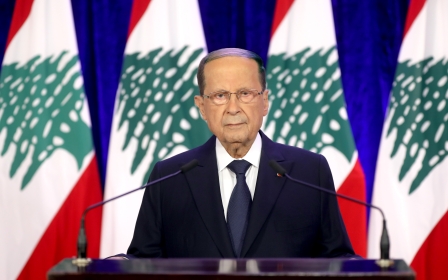Chicken run: Lebanese boy risks life and limb to rescue runaway fowl from Israel

Hezbollah may be Israel's most pressing threat on the Lebanese border, but a chicken-related incident has indicated that the Israeli army is frightened of a military coop, too.
Hussein Shartoony, a young Lebanese boy from the southern village of Meiss el-Jabal, has won plaudits for his bravery after risking life and limb to rescue a runaway chicken that had made a break for Lebanon's enemy to the south.
The youth is reported to have completed the rescue operation despite Israeli troops firing into the air in an attempt to shoo Shartoony away.
'I wasn’t scared because I wanted my chicken'
- Hussein Shartoony
In a video that has been viewed over 100,000 times on Twitter, Shartoony explains how the day before the incident, his father had purchased two chickens for Hussein and two for his brother.
As the two brothers opened the chicken hutch the next morning, one of Hussein’s chickens escaped towards a fence guarded by Israeli soldiers.
Stay informed with MEE's newsletters
Sign up to get the latest alerts, insights and analysis, starting with Turkey Unpacked
Shartoony explains: “I went to catch my chicken, but from their fear, the Israelis started to shoot at the sky and the wind.”
When asked if he was scared, he assuredly replies that he was not. “I wasn’t scared because I wanted my chicken.”
Israel's military told Middle East Eye three "suspects" had crossed over the Blue Line, a border demarcation between Lebanon and Israel.
"After the suspects crossed the Blue Line, IDF troops who were dispatched to the scene operated to stop the suspects in accordance with the standard operational procedures by firing into the air," the military said.
"After the warning shots were fired, the suspects dispersed. The IDF will not tolerate any attempt to violate Israeli sovereignty."
It is understood that the chicken was not counted by the military as one of the suspects.
Commending courage
Shartoony’s resolute statement of “I want my chicken” has resonated with social media users and was made into an Arabic hashtag.
Online, people have used the hashtag to commend Hussein’s courage.
Translation: Whoever does not give up on his chicken cannot give up a homeland. Thank you to this southern cub who isn’t afraid of tanks and those who shelter in them and provided a lesson in dignity and patriotism. Please listen to him.
Translation: Oh the innocence of this child who carries within him the claim to his rights without abandoning them no matter what. He did not pay attention to the bullets as much as the demand for his right.
Others took the opportunity to ridicule the Israeli army for their reaction.
Translation: The chicken which terrorised the Zionists today at the border which led to bullets being fired by the occupation army. If a chicken did this to you what would happen if we sent a rooster?
Meanwhile, some regarded Hussein’s story as a metaphor for the Palestinian claim over their land.
Translation: We won't even give up a chicken, you want us to give up Palestine?
Israel has invaded Lebanon several times, and occupied its south between 1982 and 2000.
Meiss el-Jabal is about 2km from the United Nations-demarcated Blue Line between Lebanon and Israel. The Blue Line is a border demarcation that the UN created in 2000 to measure whether Israel had fully withdrawn from the south. Lebanon says Israel still occupies some parts of its territory, including the Shebaa Farms.
Since the Israeli pullout, the border has been witness to multiple clashes, and work is ongoing to rid the area of landmines.
In 2018, Israel seized a Lebanese shepherd tending to his flock. His sheep returned to his town of Shebaa without him.
Middle East Eye delivers independent and unrivalled coverage and analysis of the Middle East, North Africa and beyond. To learn more about republishing this content and the associated fees, please fill out this form. More about MEE can be found here.




